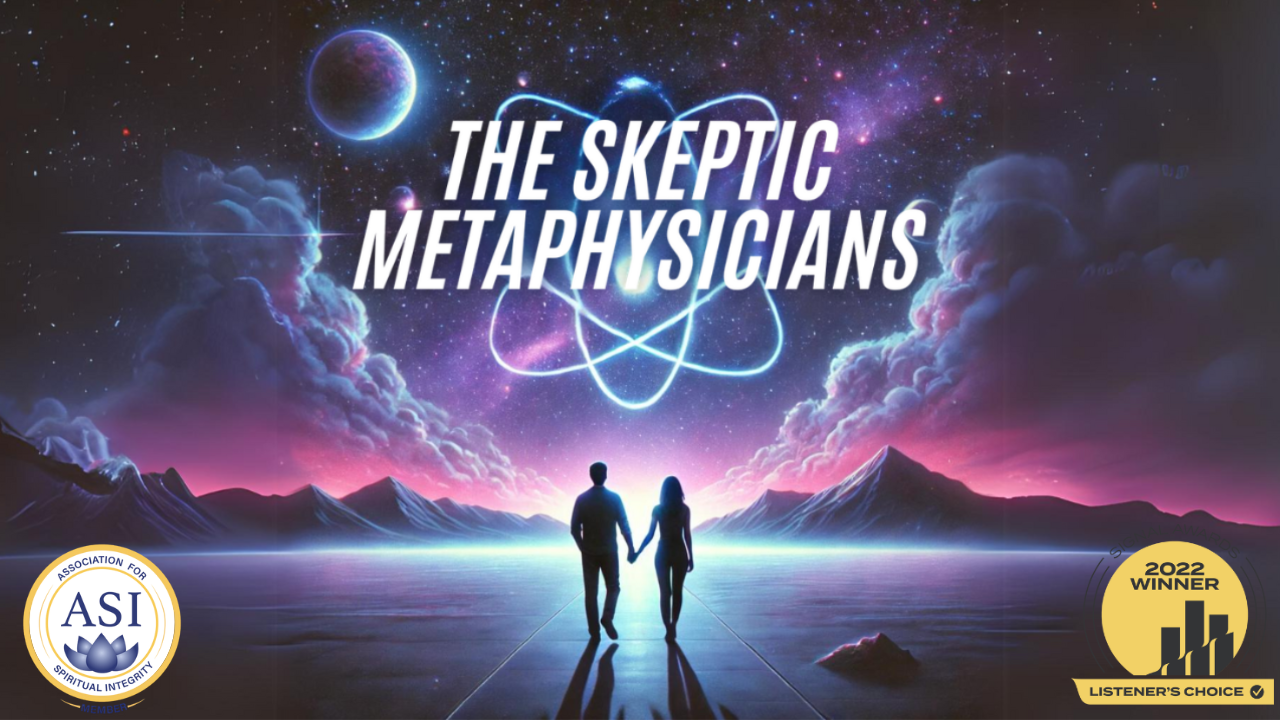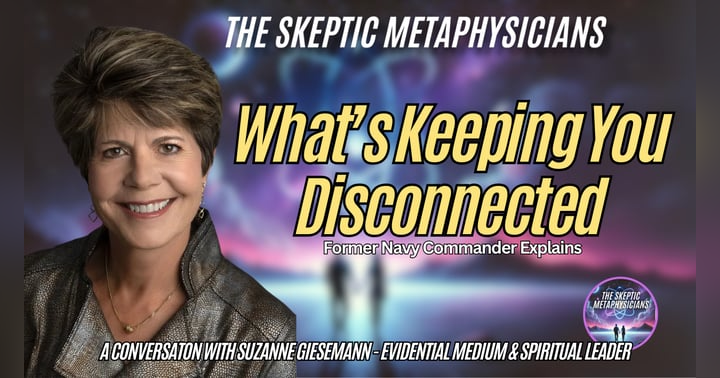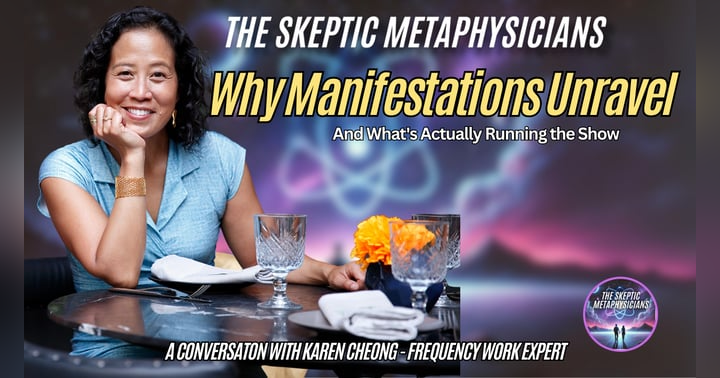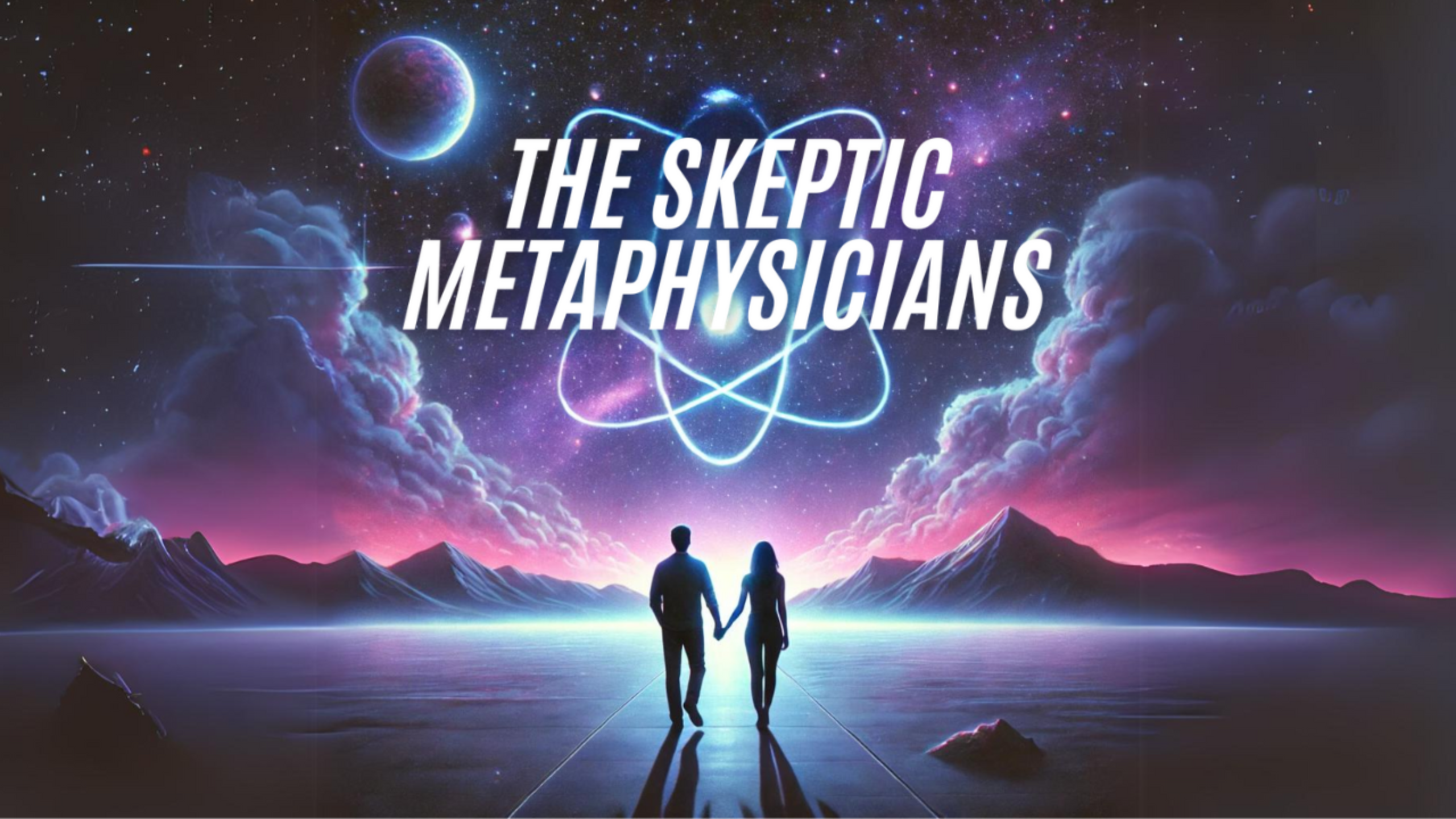
What if the key to emotional balance, mental clarity, and even spiritual connection was already growing underfoot… in a mushroom?
In a groundbreaking episode of The Skeptic Metaphysicians, hosts Will and Karen sat down with Kayse Gehret, founder of Microdosing for Healing, to explore the transformative world of microdosing—a topic they’d never covered before.
From its misunderstood roots to its incredible modern applications, this conversation opened up an entirely new frontier in spiritual development, mental wellness, and metaphysical exploration. Buckle up, because what you’re about to discover might just change your perspective—one microdose at a time.
What Is Microdosing, Really?
Let’s start with the basics. Microdosing refers to the practice of taking very small, sub-perceptual doses of psychedelic substances—most commonly psilocybin, the active compound in “magic mushrooms.” Unlike full-dose psychedelic experiences, which can be intense and vision-inducing, microdosing is subtle. So subtle, in fact, that you might not even feel it happening.
But that doesn’t mean nothing’s happening.
“You’re more connected, more intuitive, more articulate, more focused—you’re almost better at most things,” Kayse explained. “It’s very much the opposite of something like alcohol that takes you out of yourself. Microdosing brings you back into yourself.”
Microdosing vs. Macrodosing: Is Bigger Better?
For many spiritual seekers, the phrase “psychedelic mushrooms” brings to mind full-blown, goddess-level, vision-quest journeys. Think ayahuasca-style ego death, jungle shamans, or college kids chewing stems at music festivals.
But microdosing isn’t about escaping reality—it’s about enhancing it.
“For a lot of people, it’s the gateway to deeper healing,” Kayse said. “Some might eventually feel called to do a higher-dose journey, but many don’t. Microdosing alone can bring profound spiritual shifts.”
According to a 2019 study published in Frontiers in Psychiatry, microdosing psilocybin has been associated with enhanced mood, increased focus, reduced anxiety, and even increased creativity. Unlike macrodosing, it allows users to continue daily activities without impairment, making it an accessible tool for personal development in everyday life【source: Frontiers in Psychiatry, 2019】.
Can Mushrooms Help You Ditch Anxiety, Alcohol, and Sleepless Nights?
Surprisingly… yes.
Kayse shared story after story of individuals who saw major shifts in their well-being after just a few weeks of microdosing. From entrepreneurs and parents to trauma survivors and therapists, people were using microdosing as a tool to recalibrate their nervous systems and find a more grounded, peaceful version of themselves.
“Most of the people I work with aren’t looking to trip out,” Kayse noted. “They’re CEOs, parents, teachers—people who need to be on their game. And microdosing actually helps them do that.”
In fact, many in her community found themselves naturally moving away from alcohol. Not because they tried to quit—but because they no longer felt the need to escape or numb.
“Mushrooms have a very high, bright resonance,” she explained. “They raise your vibration. And once you’ve experienced that, alcohol starts to feel… heavy.”
Mushrooms vs. Menopause: A Surprising Ally for Women
One of the most surprising parts of the conversation came when Karen asked whether microdosing could support perimenopause or menopause symptoms.
Kayse didn’t miss a beat: “It’s the number one question I get right now.”
From mood swings and brain fog to inflammation and fatigue, women navigating the hormone rollercoaster are turning to microdosing in record numbers.
“There’s still so much shame and silence around women’s aging,” Kayse said. “But mushrooms seem to be helping people reconnect with their bodies, regulate their emotions, and even feel more vibrant and youthful.”
In a world where the default answer is often synthetic hormone replacement or antidepressants, the idea that a small dose of fungi might help regulate sleep, mood, and even inflammation is beyond intriguing—it’s revolutionary.
What About the Guys?
Men aren’t left out of this conversation, either.
Kayse shared that men often see immediate improvements in sleep, which is usually the first sign that the nervous system is rebalancing. With better sleep comes sharper focus, more emotional presence, and—you guessed it—spiritual awareness.
“I hear it all the time,” she said. “‘I’m dreaming again. I haven’t remembered my dreams since I was a kid.’”
From Grief to Growth: Who Shouldn’t Microdose?
While microdosing is safe and well-tolerated for most, Kayse emphasized that it’s not for everyone—especially people in acute emotional crisis.
“If someone’s in the early stages of deep grief or trauma, I usually suggest starting with gentler grounding practices like breathwork, nature connection, or meditation,” she said. “Mushrooms can surface emotions quickly, and if you’re not resourced or supported, that can feel overwhelming.”
But… Is It Legal?
Ah, the million-dollar question.
The legality of psilocybin varies wildly depending on your location. In places like Oregon and Colorado, psilocybin has been decriminalized and even legalized for therapeutic use. Some cities across the U.S. have also decriminalized its possession, including Oakland, Santa Cruz, and Ann Arbor.
As of mid-2025, psilocybin remains federally classified as a Schedule I drug in the United States, meaning it’s still technically illegal at the national level. However, growing momentum in the scientific and spiritual communities has led to dozens of new studies and ongoing legislation efforts to change this status【source: MAPS.org & Psychedelic Alpha】.
Still, there are ways to participate safely and ethically, especially through spiritual or religious frameworks, which offer certain protections under U.S. law. Some communities even teach people how to grow their own mushrooms legally using cultivation kits in states where spores are allowed.
The Spiritual Side: Reconnecting with Your Divine Blueprint
So how does all of this tie into the metaphysical?
According to Kayse, mushrooms are sacred allies—a bridge between the physical and spiritual worlds. They don’t just “work” on the brain or body; they open up channels to our intuition, guides, and higher self.
“They help you remember who you really are,” she said. “It’s not about adding something to you. It’s about peeling back the layers that were never yours to begin with.”
For some, microdosing awakens a deeper connection to nature. For others, it stirs up vivid dreams, synchronicities, and even contact with spirit beings or animal messengers.
Whether you call it divine guidance or inner wisdom, the experience is deeply personal—and often life-changing.
But Isn’t This Just a Shortcut?
It’s a fair question. One often posed by critics, scientists, or conservative spiritual thinkers.
Is using a substance to access altered states or emotional healing just a spiritual crutch?
“I hear that a lot,” Kayse admitted. “But in my experience—and the experience of thousands—it’s not bypassing anything. It’s actually helping people face the stuff they’ve been avoiding for years.”
She referenced a recent study where pastors, rabbis, and spiritual leaders were invited to take psilocybin. The result? A deepened connection to their own teachings—and an understanding that these medicines have always been part of ancient sacred traditions.
Indeed, historical records and recent archeological discoveries suggest that psychedelics were used in early Christian, Hindu, and indigenous ceremonies around the world. From the Eleusinian Mysteries in Ancient Greece to Amazonian shamans and Vedic soma rituals, sacred plants and fungi have long served as tools for divine communion【source: Journal of Psychedelic Studies, 2021】.
How Long Do the Effects Last? Will I Become Dependent?
Another major takeaway? Microdosing isn’t addictive—and it’s not meant to be forever.
“The goal is actually to not need it anymore,” Kayse emphasized. “It helps you reset your system. But once you’re rebalanced, many people just stop naturally.”
On a practical note, she explained that psilocybin leaves your system in about 15 hours, and it doesn’t show up on standard drug tests—making it more workplace-friendly than you might think.
So… Where Do You Even Start?
Kayse offers multiple entry points for the curious and cautious alike:
A global membership community where participants from 30+ countries gather for live coaching calls, Q&A, and safe support
Six-week immersive programs designed to walk you step-by-step through your microdosing journey
Professional guide training for those called to lead others in this sacred work
Even better? The Microdosing for Healing website is packed with free podcasts, resources, and education, so you can explore at your own pace—without pressure, stigma, or confusion.
Final Thoughts: A Sacred Invitation
Whether you’re a lifelong spiritual seeker, a burnout-prone empath, a high-achieving skeptic, or just someone who’s quietly suffering behind the scenes… this conversation is your invitation.
Microdosing isn’t a miracle cure. It’s not a magic bullet. But it is a path—one that leads inward.
“It’s not about getting high,” Kayse said. “It’s about getting clear.”
Ready to Explore the Path Yourself?
Learn more at: www.microdosingforhealing.com
Listen to the full episode on The Skeptic Metaphysicians wherever you get your podcasts
Still curious? Drop us a question or share your thoughts in the comments!















